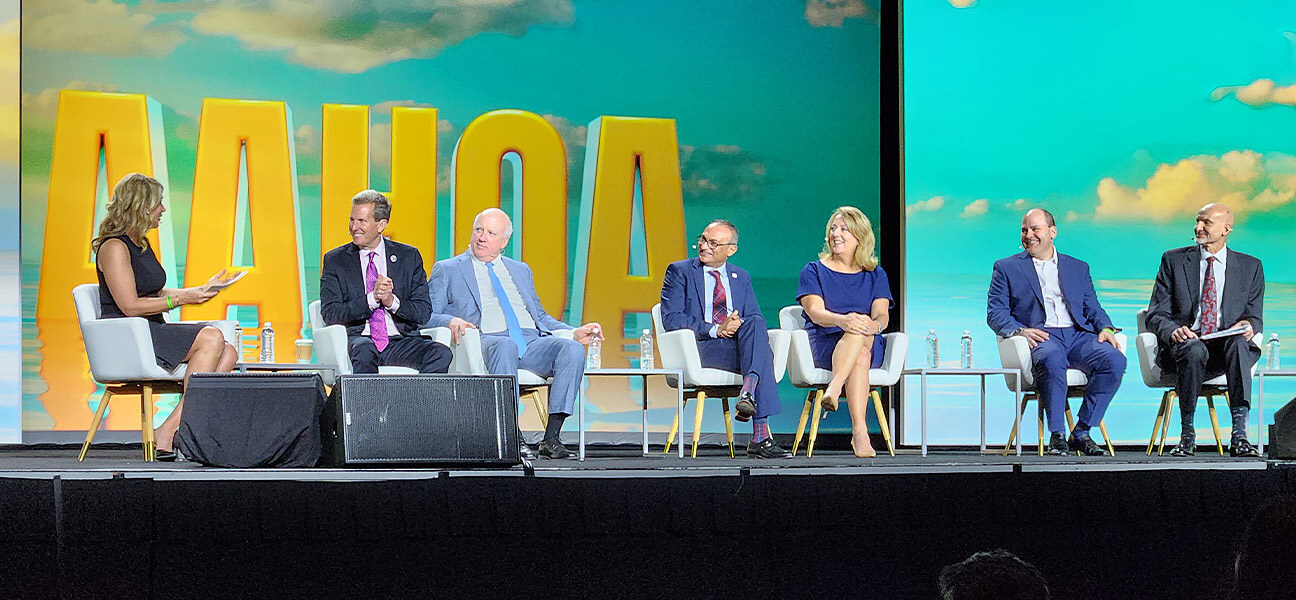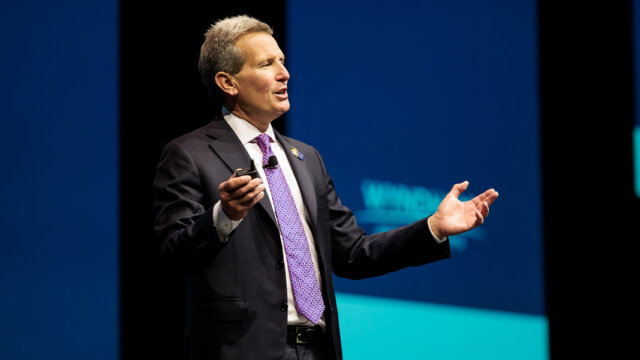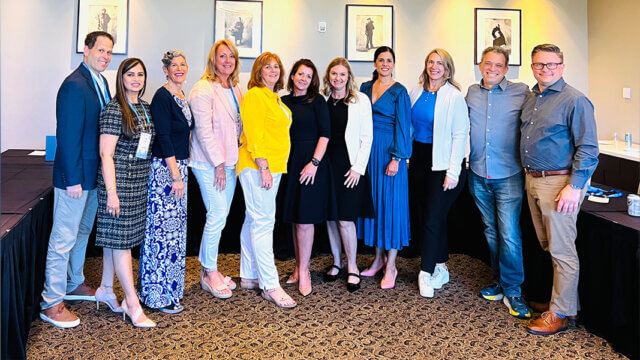At the 2024 AAHOA Convention & Trade Show at the Orange County Convention Center in Orlando, brand leaders took to the stage during the first General Session to discuss the issues affecting the hotel industry.
Moderated by Sarah Dandashy, creator, Ask a Concierge, the panel included Geoff Ballotti, president/CEO, Wyndham Hotels & Resorts; John Murray, president/CEO, Sonesta; Rajiv Trivedi, board member, Red Roof; Julie Arrowsmith, president/CEO, G6 Hospitality; Greg Juceam, president/CEO, Extended Stay America; and Larry Cuculic, president/CEO, BWH Hotels.
The panelists were asked what the most significant industry disruptors are. Cuculic was quick to respond.
“Google’s new search generative experience is going to be a huge disrupter,” he said. “When you are starting your search, They will know who you are. They will know where you stayed the last time, and what chain scale you stayed at. They will know if you like an indoor and outdoor pool or rooftop pool. They’ll know everything about you.”
The way Google will present the search results, he said, can be a detriment to the hotel. He brought up something he saw during a Google presentation.
“Google put in the best hotel in Chicago, and the search only served up reviews of hotels with Google reviews of four stars or more,” Cuculic said. “They will value the guests on Google, which is going to have a direct impact on your bottom line.”
Trivedi noted that AI-driven platforms like Google’s new search experience gives hoteliers the opportunity to “know your guest up close and personal, and you can do targeted marketing.”
Hotels can leverage data AI captures and “provide personalized service to each guest because you will know their tendencies,” he said. “AI is scary, but it is a great opportunity.”
“As with any new technology that rolls out, there’s refinement that has to happen,” said Arrowsmith. “I know there’s frustration out there with Expedia reviews, and they don’t go away. And you fight with an OTA to try to get the best information about your hotel out there for the guests to see. Sometimes, it’s not how the algorithms put it together. So there have to be some pain points with these changes until we work with the technology companies to try to make sure that the way they’re placing our hotels are putting them into the proper lite.”
The discussion turned to the labor crisis in the industry. Dandashy asked the group to offer strategies on how to ensure that all their properties attract, retain and efficiently manage talent.
“We all have to get out more and recruit more, and we all have to use our voices,” said Ballotti. “We are losing talent to other industries. That’s a huge issue for us as an industry. We all have a job to do to attract talent to this industry. We all need to spend more time on college campuses, and need to be talking about it.”
Murray agreed, adding, “Talk to high schools that participate in apprenticeship programs and internship programs. And you have to show employees that they’re appreciated. There are so many great stories about people who started as doormen or in housekeeping. We have to tell those stories.”
Trivedi believes it’s about culture at the property level. “People that are working at your property will stay aligned if they have found a culture where the people are appreciated and the pay is appropriate. You also have to educate them that there is a path to a better tomorrow. Mentor them and show them a path and a vision that they could do better than what they have done today.”
Juceam pointed to the purpose of why guests stay at his properties, and what that means to Extended Stay America employees.
“All of us have extended-stay brands on this stage, me in particular,” he said. “People are away from home for weeks and months on end. We have an opportunity to help them have better lives and take care of them when they are in a vulnerable situation. It really helped with retention when our employees understand that.”



